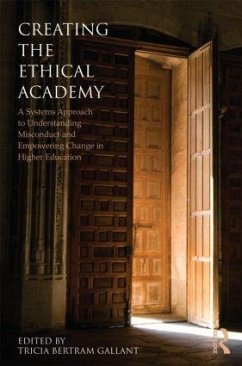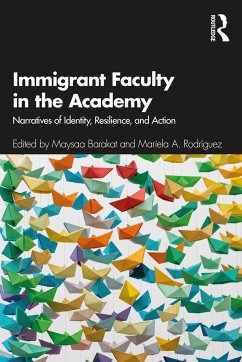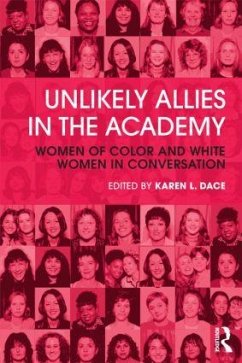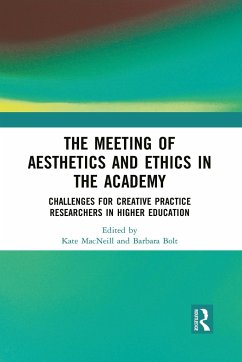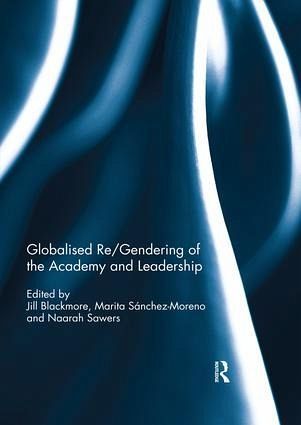
Globalised re/gendering of the academy and leadership

PAYBACK Punkte
29 °P sammeln!
The significance of Higher Education to national knowledge-based economies has made the sector the object of government policies, international monitoring, and corporatization. This radical global restructuring of higher education is gendered in its processes, practices, and effects. Exploring how the re-organisation of the sector has redefined academic, management, and professional roles and identities, this book considers the different impacts of structural change for men and women working at diverse levels of the academy. Drawing from empirical studies undertaken in Europe, North America, A...
The significance of Higher Education to national knowledge-based economies has made the sector the object of government policies, international monitoring, and corporatization. This radical global restructuring of higher education is gendered in its processes, practices, and effects. Exploring how the re-organisation of the sector has redefined academic, management, and professional roles and identities, this book considers the different impacts of structural change for men and women working at diverse levels of the academy. Drawing from empirical studies undertaken in Europe, North America, Asia, and Australasia the contributions offer a range of theoretical and methodological perspectives, including large scale comparative data and case studies. They inform what is a key policy issue in the 21st century - the re-positioning of women in the academy and leadership. Despite a range of institutional equity strategies in which women learnt the 'rules of the game', this book shows that structural and cultural barriers - often conceptualised through metaphors such as sticky floors, glass ceilings, chilly climates, or dead-end pipelines - have not disappeared as might be expected as the academy becomes numerically feminized. Each chapter provides an insight into how historical legacies, cultural contexts, geographic locations, modes of regional and institutional governance, and national policies are mediated and vernacularized through practice by localized gender regimes and orders. This book was originally published as a special issue of Gender and Education.





